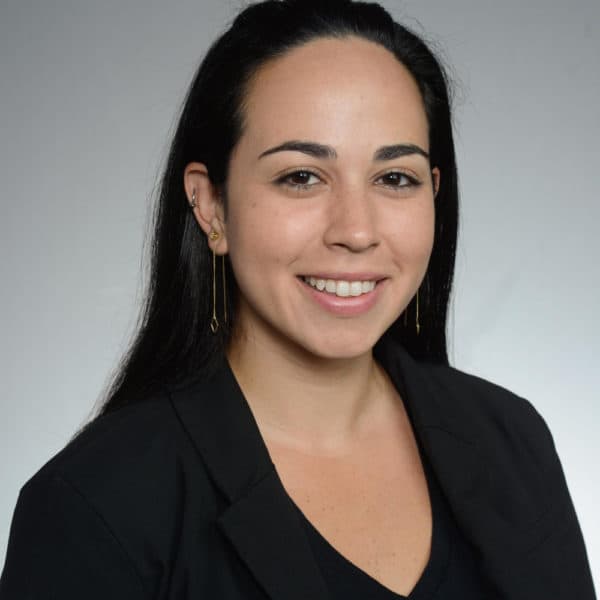Advertisement
Prepared For PKU, This Couple Kept Adopting Kids With The Rare Genetic Disorder
Resume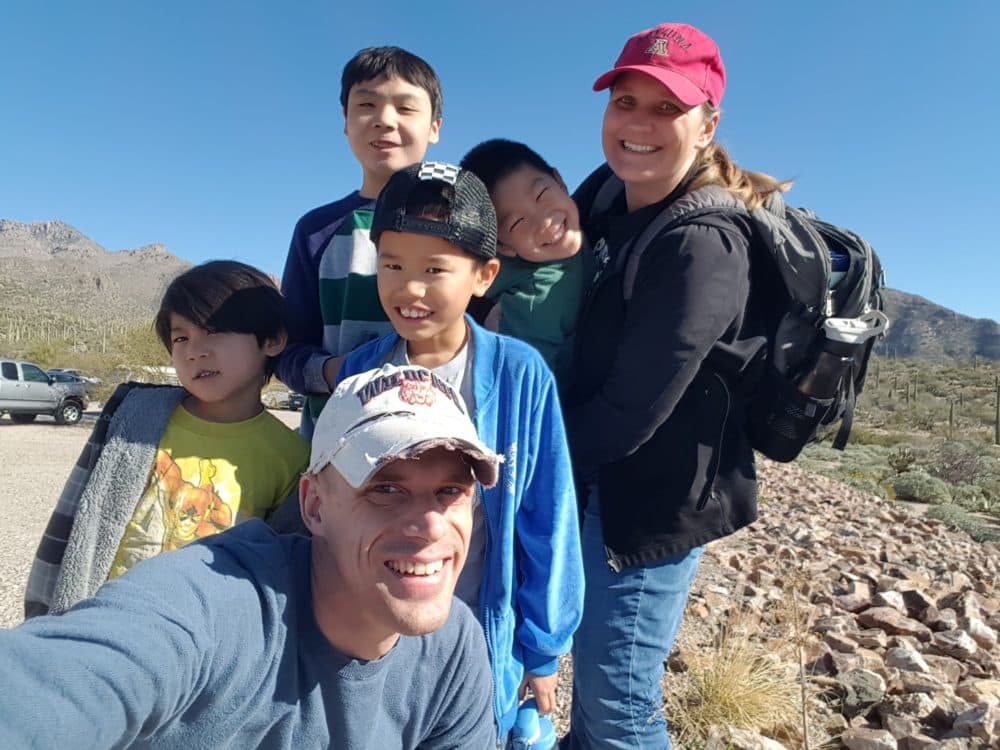
Dinner at Kristi and Matt Smith's home in Tucson, Arizona, is always a bit of a production. As their boys rabble-rouse, the parents are meticulously measuring every ounce of food that will go on their plates.
Tonight, the Smiths are eating pasta with vegetables.
"My favorite food growing up, probably still one of my favorites, is spaghetti," Kristi, 36, says. "However, it's not just run up to the grocery store, buy a box of spaghetti, you know, and a jar of Ragu."
Each box of pasta Kristi buys is specially ordered from a company in Connecticut and shipped across the country. The total cost, including shipping, for a single box of Kristi's pasta is about $12. That's because she needs special low-protein spaghetti; in fact, she needs low-protein everything.
"A glass of milk is actually one day's worth of my protein intake that my body can handle," Kristi says.
Kristi Smith has a rare genetic disorder called phenylketonuria, more commonly known as PKU. People with PKU cannot break down an amino acid called phenylalanine, also known as "phe," found in all protein. High consumption of phenylalanine in people with PKU can cause irreversible brain damage in children, and cognitive and intellectual dysfunction in adults. The way to prevent the damage is to eat a low-protein diet, keeping careful track of protein consumption, and to drink a special medical formula.
It wasn't easy growing up with PKU, Kristi says, but she and her parents tried to make her childhood as average as they could.
"I couldn't have the meat on say a hamburger," Kristi says. "So I had my low-protein bread, and pickles, and ketchup, and I got some weird looks, and I ate that every single day in middle school at lunch."
Despite the social challenges of PKU, Kristi learned to control her symptoms and thrived into adulthood. She graduated from high school with honors, went on to college and got two bachelor's degrees, and became a nurse. And in 2008, she married Matt, who works as a training manager for the Arizona Air National Guard.
A couple of years into their marriage, Kristi and Matt started talking about having kids.
"Pregnancy for women with PKU is really a big deal because you have to have those levels really under control and extra tight in order to not cause damage to the baby," Kristi says. "For a lot of women, it's very difficult."
Given the challenges of pregnancy, the Smiths talked about adoption. They were particularly interested in adopting children with Kristi's disorder, as they knew they could handle the strict lifestyle it requires. But Kristi and Matt never encountered a child with PKU who needed a home ... until she saw a posting on a Facebook group.
"So I mentioned to Matt, 'Hey, we talked about if there's a kid with PKU we would adopt him, right?' And he said, 'Yeah ... sure,' " Kristi says. "And I said, 'What if they're in China?'"
Kristi and Matt were apprehensive about international adoption. They had heard horror stories about traumatized children and kids with PKU who weren't well cared for medically.
"A lot of adoption stories we hear, these children are not on diets, so they're accumulating brain damage as they go," Matt says. "That's irreversible, so they might not reach their full potential."
But after plenty of research, they decided to go for it. And in 2015, after home studies and endless paperwork, Kristi and Matt flew across the Pacific Ocean and became parents to two 2-year-old boys: Luke and Andrew — both with PKU.
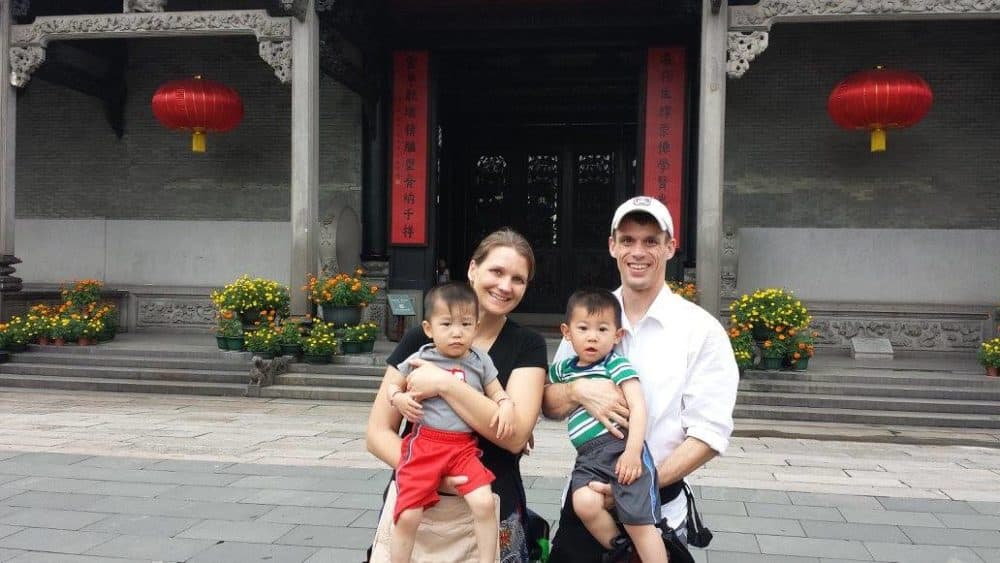
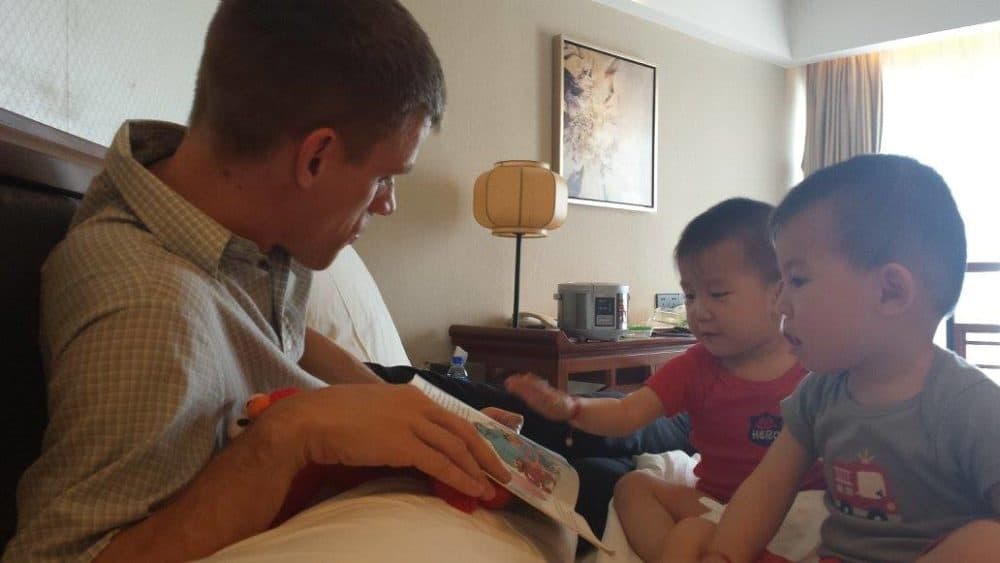
The boys slowly adjusted to their new lives in Tucson. But parenting two toddlers with PKU comes with some unexpected difficulty.
"I'm used to doing my diet," Kristi says. "I know what I'm going to eat, and I eat it. When we feed the 2-year-olds, it does not necessarily get consumed by said 2-year-olds. It might be on the floor, it might be in the hair, it might be on the wall, it might be in the dog's stomach."
Nowadays, Andrew and Luke are sticking to the diet, just like Kristi.
In 2017, Kristi started thinking she could do more to expand their PKU family. She had become an advocate for PKU adoption after seeing how difficult it was to find families for these children, especially those who were a little older.
And through her online advocacy, she discovered Caleb.
"I ended up falling in love with that little guy and mentioning him to Matt that he's 7 and he just keeps pulling at my heartstrings, he keeps popping into my mind and I really think we should think about adopting him," Kristi says.
Matt agreed. Two years after they adopted Luke and Andrew, they made plans to adopt Caleb. They were also watching the profile of another boy — Ben — whose need was growing more dire by the day.
Ben was nearly 12, nearly 13, and had been waiting for a home for years. But the clock was ticking on his eligibility: Chinese law prohibits children 14 and older from being adopted.
If Kristi couldn't find a family for Ben, he could be stuck at an orphanage or an adult institution for life, where he would have practically no chance at a formal education or developing real-world skills. Adoption experts say the scope of possibility for these "unadoptable" kids diminishes significantly.
Kristi was determined to find Ben a home.
"Me and my friends on Facebook, we're just begging," Kristi says. "I begged my parents. And begging friends from church, begging friends from the PKU community, begging friends at work you know. Anybody, everybody needs to adopt this child. Nobody bit."
So Matt and Kristi decided they had to adopt Ben, too.
Medically, Ben's situation was particularly serious: His files said he was not on the PKU diet. The anxieties re-emerged for Kristi and Matt.
"We had no idea what we were walking into," Kristi says. "We didn't know what kind of brain damage that we were going to have. It was a lot of unknowns there."
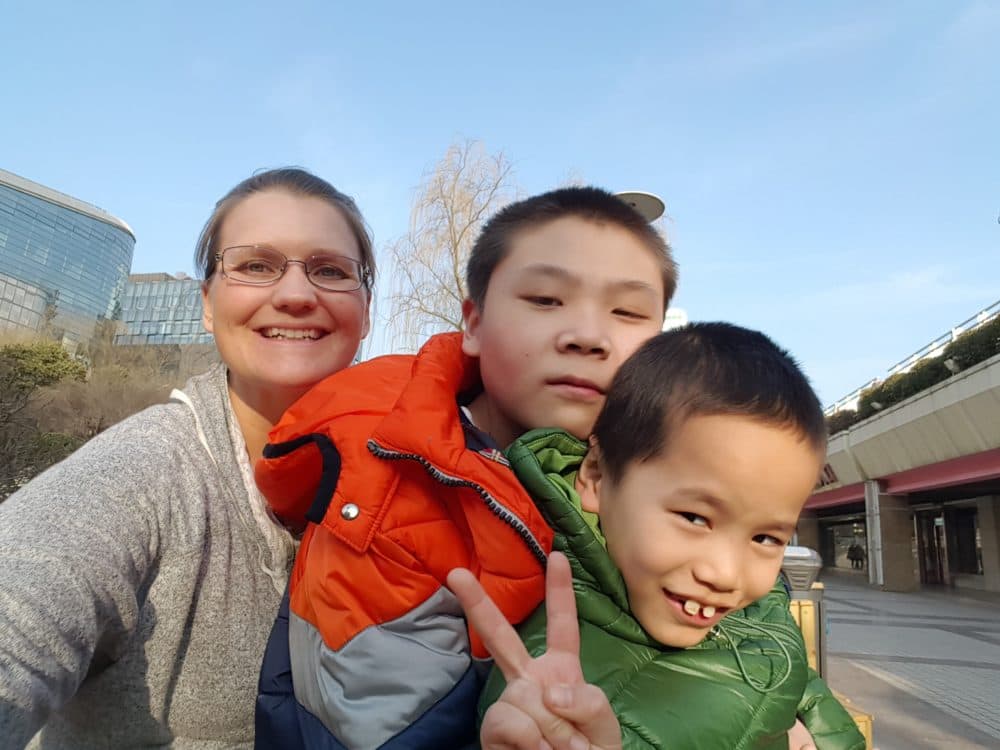
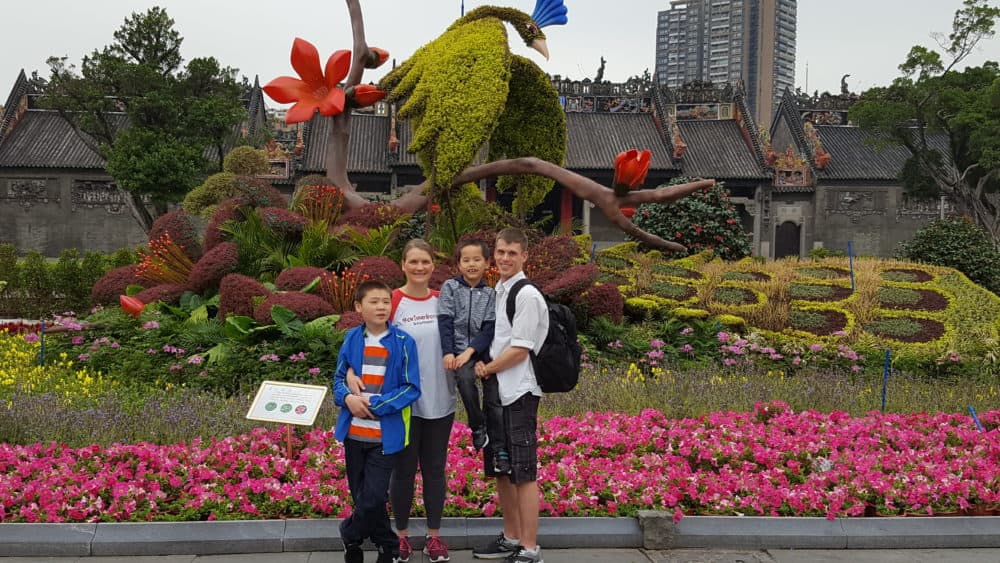
With just one month until his 14th birthday, Matt and Kristi finalized the adoption and flew to China to bring Ben and Caleb home.
When they met Ben, he was nonverbal. Kristi and Matt were heartbroken.
"It was a rough time just accepting what we were taking on but we knew that he was our kiddo, we knew that he needed love and that he was ours," Kristi says.
The Smiths went from a family of two to a family of six in just three years.
The boys are speaking English now — even Ben, who's started to sound out words. The brothers are close and rowdy and rambunctious.
Kristi and Matt say their adoption journey was more than just achieving their dreams of having a family — it was a responsibility.
"I felt like we had the resources that it took to care for these children and to not was just selfish on our part," Kristi says.
Regardless of the difficulties, Kristi and Matt answered a calling. Now, they and their four boys are a family, brought together by a common difference.
This segment aired on April 29, 2019.
